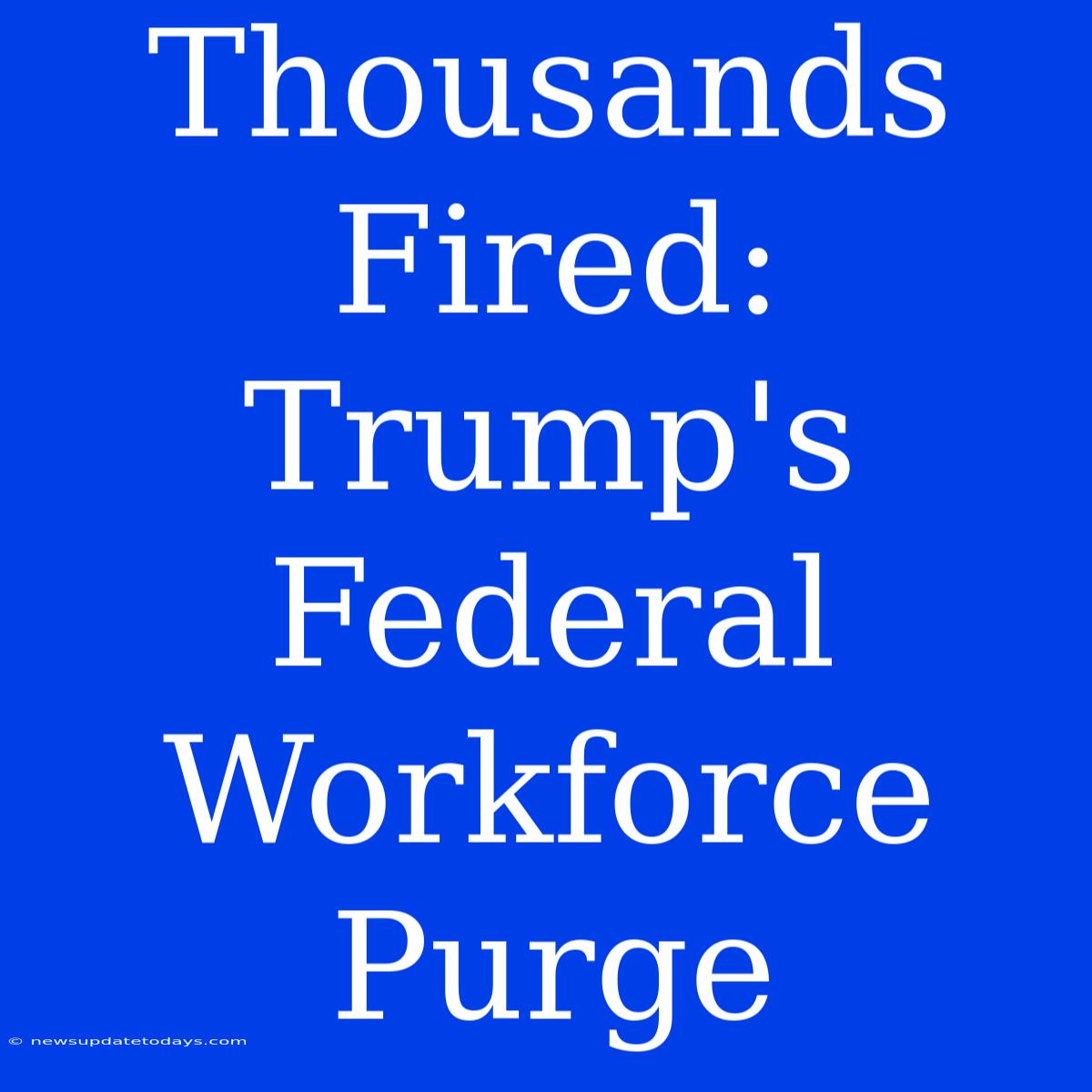Thousands Fired: Unpacking Trump's Federal Workforce Purge
The Trump administration's impact on the federal workforce remains a subject of intense debate and scrutiny. Beyond policy changes, a significant aspect of this legacy involves the large-scale dismissals of federal employees. This article delves into the scale, implications, and ongoing controversies surrounding this "purge," examining its effects on government efficiency, political neutrality, and the broader civil service.
The Scope of the Dismissals: More Than Just Numbers
While precise figures remain contested, numerous reports indicate thousands of federal employees were dismissed, reassigned, or otherwise lost their positions during the Trump presidency. These weren't simply routine firings for performance issues. Many accounts suggest a concerted effort to remove individuals perceived as disloyal to the administration or otherwise incompatible with its agenda. This went beyond high-profile political appointees; it impacted career civil servants who, traditionally, enjoy significant protections against partisan political influence.
Beyond the Numbers: The Impact on Government Function
The consequences of these dismissals extend far beyond simple headcounts. The removal of experienced, non-partisan professionals raised concerns about:
- Loss of Institutional Knowledge: Years of accumulated expertise and institutional memory were lost, potentially impacting the effectiveness and efficiency of various government agencies.
- Decreased Morale: The climate of fear and uncertainty created by these actions likely dampened morale amongst remaining employees, potentially hindering productivity and job satisfaction.
- Political Polarization: The targeting of individuals based on perceived political affiliations further exacerbated the already significant political polarization within the United States.
- Weakening of Checks and Balances: Some argue that the purge undermined the principle of a non-partisan civil service, intended to act as a check on executive power.
The Controversy Continues: Legal Challenges and Ethical Questions
The methods employed during the Trump administration's personnel changes sparked significant controversy and legal challenges. Accusations of retaliation against whistleblowers and employees expressing dissenting views fueled concerns about the administration's respect for the rule of law and its commitment to ethical governance.
The long-term ramifications of these actions are still unfolding. Investigations, lawsuits, and ongoing analyses continue to explore the full extent of the damage inflicted on the federal workforce and the American people.
Looking Ahead: Rebuilding Trust and Professionalism
The experience of the Trump-era federal workforce purge serves as a stark reminder of the importance of protecting the integrity and independence of the civil service. Rebuilding trust in government requires a concerted effort to ensure that the merit principle guides hiring and promotion practices, and that employees feel safe voicing concerns without fear of reprisal. Strengthening existing protections for whistleblowers and career civil servants is crucial to preventing future incidents of this nature.
Keywords: Trump administration, federal workforce, federal employees, purge, dismissals, civil service, political appointees, institutional knowledge, morale, political polarization, whistleblowers, ethical governance, rule of law, government efficiency.

